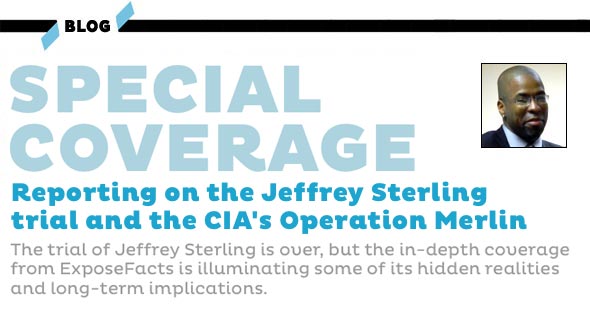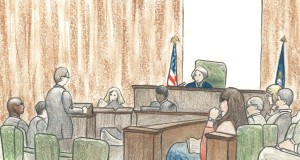Update: Jurors have found Sterling guilty of all 9 counts. A full update soon.
Update, 1/28: I apparently missed one phone call when originally calculating this. I have corrected the times accordingly. I apologize for my sketchy math.
As a number of outlets have reported, shortly before lunch, the jurors in the Jeffrey Sterling case asked for guidance because they could not come to agreement on several counts. While discussing instructions to give in response, Judge Leonie Brinkema justified her apparent willingness to accept an impasse from the jury by saying, “It’s a very complicated case … a circumstantial evidence case. This jury’s been out since Thursday.”
In response, some observers are raising other cases where the jury stalled but then came to a decision, pointing out the jury has deliberated just two days, and suggesting this impasse says something about the jury.
But few who haven’t sat through the trial realize just how circumstantial the evidence on most of the charges against Sterling is.
The only evidence of phone calls between Sterling and James Risen immediately before Risen went to the CIA with a fully drafted story on the Merlin operation consists of 2 minutes and 40 seconds 4 minutes and 11 seconds of calls, total, across 7 phone calls. Then there’s one email in which Sterling sent Risen a link to an unclassified article on Iran posted by CNN.
Two minutes and 40 Four minutes and 11 seconds for what would likely have been a 1000-word story?
Indeed, in discussions immediately after the closing arguments, even Judge Brinkema acknowledged how circumstantial the case is. Ed MacMahon tried to get all the charges thrown out on venue grounds — because, after all, the prosecution only presented evidence that Sterling and Risen had spoken, on any topic, for 2 minutes and 40 4 minutes and 11 seconds in the state of Virginia.
That’s it.
At that point, Judge Brinkema reminded the defense the jury is allowed to consider circumstantial evidence. She said there was “enough smoke” in this case “it can go to the jury. We’ll see what the jury does with the case.”
That still doesn’t mean Sterling will get off on all charges. While the count for which the government submitted the most evidence — an obstruction charge tied to Sterling deleting that one email — suffers from the most serious venue problems, the government told a compelling story, and Risen and Sterling had much longer conversations in 2004 and 2005.
But it’s worth noting that even the judge in this case, Leonie Brinkema, has referred to the case as one of smoke, not fire.


